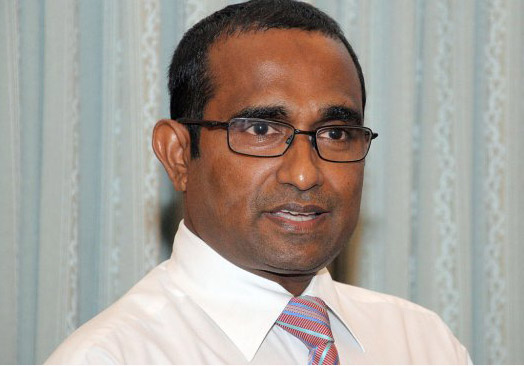The arbitrary and unlawful removal of the Chief Justice Ahmed Faiz Hussain (photo) and Supreme Court judge Justice Muthasim Adnan, constitutes an assault on the independence of the judiciary, the ICJ said today.
“The Maldivian parliament and executive have effectively decapitated the country’s judiciary and trampled on the fundamental principles of the rule of law and separation of powers in a democratic State,” said Sam Zarifi, ICJ’s Director for Asia and the Pacific. “These two judges should be reinstated immediately.”
On 10 December 2014, the People’s Majlis (Maldivian parliament) passed an amendment to the Judicature Act, 2010, to reduce the strength of Supreme Court judges from seven to five.
The amendment required that the Judicial Service Commission (JSC) recommend names of two Supreme Court judges for removal to the People’s Majlis.
The judges were to be removed from office following a vote in favor by a two-third majority of members present and voting within seven days.
Hours after President Abdulla Yameen adopted the amendment, the JSC, following an emergency meeting, recommended that Chief Justice Faiz and Justice Muthasim be remove from the bench, purportedly on the basis of unspecified misconduct.
The Chief Justice and Justice Muthasim appear to have been provided with no fair hearing or effective opportunity to defend themselves.
On 14 December 2014, reportedly acting only on the basis of a brief message from the JSC, the Majlis voted in favor of removing the two judges from the Supreme Court.
“The removal of the Supreme Court judges was astonishingly arbitrary,” added Zarifi. “The superficial legislative and administrative maneuvers used to get rid of them were grossly unfair and in flagrant violation of the Maldivian Constitution, UN and Commonwealth standards on independence of the judiciary, and the obligations of the Maldives under international law. These unlawful acts must be reversed immediately.”
Contact:
Sam Zarifi, ICJ Asia Pacific Regional Director (Bangkok), t: +66 807819002; email: sam.zarifi(a)icj.org
Reema Omer, ICJ International Legal Adviser for South Asia (London), t: +447889565691; email: reema.omer(a)icj.org
Additional information:
The UN Basic Principles on the Independence of the Judiciary stipulate that Judges shall be subject to suspension or removal only through proceedings that guarantee the right to a fair hearing (Principle 17); and then only for reasons of incapacity or behavior that renders them unfit to discharge their duties (Principle 18); that all disciplinary, suspension or removal proceedings shall be determined in accordance with established standards of judicial conduct (Principle 19), and decisions in disciplinary, suspension or removal proceedings should be subject to an independent review (Principle 20). The Basic Principles elaborate on legal obligations under article 14 of the International Covenant and Civil Rights (ICCPR). To date, 168 states have become party to the ICCPR, a binding international treaty, with the Maldives having acceded to the treaty in 2006.
The Commonwealth Latimer House Principles on the Three Branches of Government 2003 contain similar provisions.
Article 154 of the Maldivian Constitution states that a judge may be removed from office only if the Judicial Service Commission finds that the person is grossly incompetent or guilty of gross misconduct.





